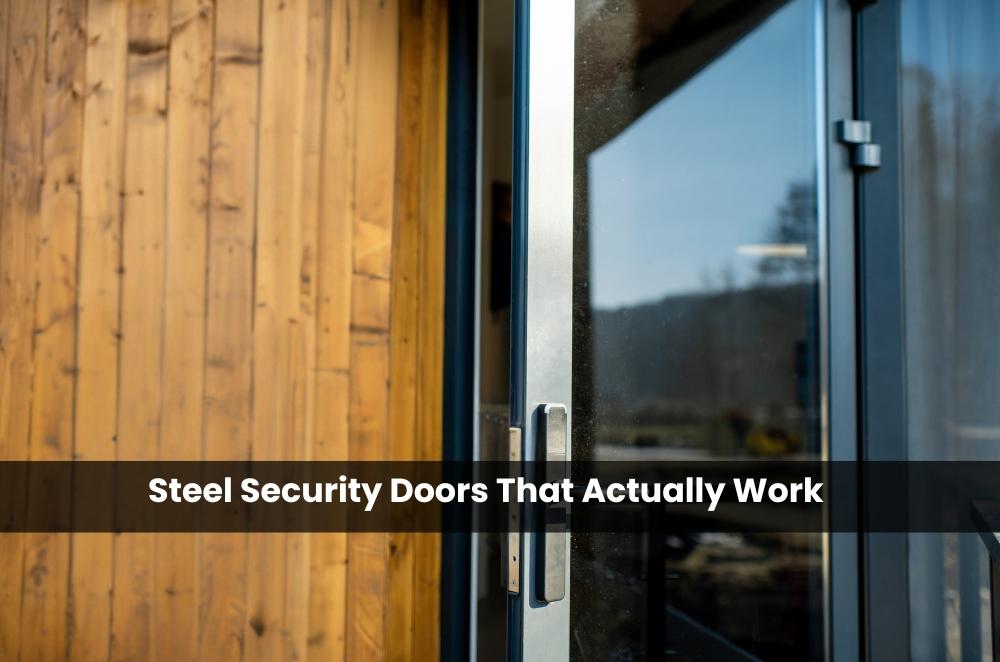Steel Security Doors That Actually Work

Security doors carry a simple promise: keep trouble out without turning the home into a bunker. The best versions balance impact resistance, mesh visibility, airflow, and everyday use. Hinges, locks, and frames do the quiet work, but mesh does the heavy lifting. Properly specified stainless or galvanised mesh shrugs off knives, kicks, and salt air, while staying tidy on the eye. That’s why we lean on steel mesh applications for security when mapping real risks to real streets. Bushfire zones, coastal suburbs, pets, and curious toddlers change the spec sheet. Good projects start with a risk map, then finish with hardware that won’t complain about weather or wear for years.
What makes a secure door reliable?
Reliability comes from engineered components working together under stress, not just a thick mesh panel. Frame rigidity, tested locks, and compliant installation decide the outcome.
Cheap builds flex at the corners; that’s where prybars live. A solid aluminium or steel frame with deep receiver channels resists twist. Add a three-point lock so force spreads across the door, not just the latch. Finally, installation matters more than marketing. If the fixings miss solid timber or masonry, even great gear underperforms.
-
Strong frames reduce break-in attempts.
-
Multi-lock systems spread force evenly
-
Professional installs cut long-term risks
Timber frames swell, brick reveals cracks, salt air corrodes—these are maintenance realities, not failures. Annual checks, a dab of lubricant, and a hose-down keep everything honest. For quoting and scope sanity, bookmark practical security door installation advice so the installer and the brief speak the same language.
How do materials and mesh grades compare?
Stainless mesh delivers the highest cut resistance and corrosion durability, while aluminium suits lighter-duty contexts. Thicker isn’t always better; weave, alloy, and coating quality matter more than headline numbers.
-
Stainless mesh lasts in coastal climates.
-
Aluminium offers lighter, affordable options
-
Quality coatings extend product lifespan
Bushfire-prone properties need ember-proofing without cooking the airflow. Look for tight tolerances around the frame, stainless fixings, and minimal plastic at heat points. In cyclonic or high-wind areas, anchoring and reveal choice matter as much as any brochure claim. And don’t forget sightlines: a darker, finer weave often “disappears” from inside, keeping the view and the breeze. We favour designs that don’t announce themselves but still cop a beating.
When should we upgrade our door?
Upgrade when the door rattles, locks feel scratchy, corrosion appears at corners, or the frame shows daylight under load. Also consider changes in risk—new tenants, street works, or a spate of break-ins.
If the current door predates modern multi-point locks, or the mesh has dings from pets, it’s time. A tidy upgrade brings quieter closes, smoother keys, and less fuss with keys from the school run to late-night returns. Prioritise tested hardware, a clean install, and a finish that handles local weather. In fact, some of the best security screen doors for Australian homes combine durability with airflow, proving that function and comfort can live in the same frame.
Final thoughts
Security doors aren’t just barriers; they’re part of how a home feels day to day. The right mesh and frame cut risks without shutting out light or air. With proper installation and maintenance, a quality door lasts for decades, quietly doing its job while keeping life moving smoothly.
- Vibnix Blog
- Politics
- News
- Liberia News
- Entertainment
- Technology
- Onderwijs
- Art
- Causes
- Crafts
- Dance
- Drinks
- Film
- Fitness
- Food
- Spellen
- Gardening
- Health
- Home
- Literature
- Music
- Networking
- Other
- Party
- Religion
- Shopping
- Sports
- Theater
- Wellness


